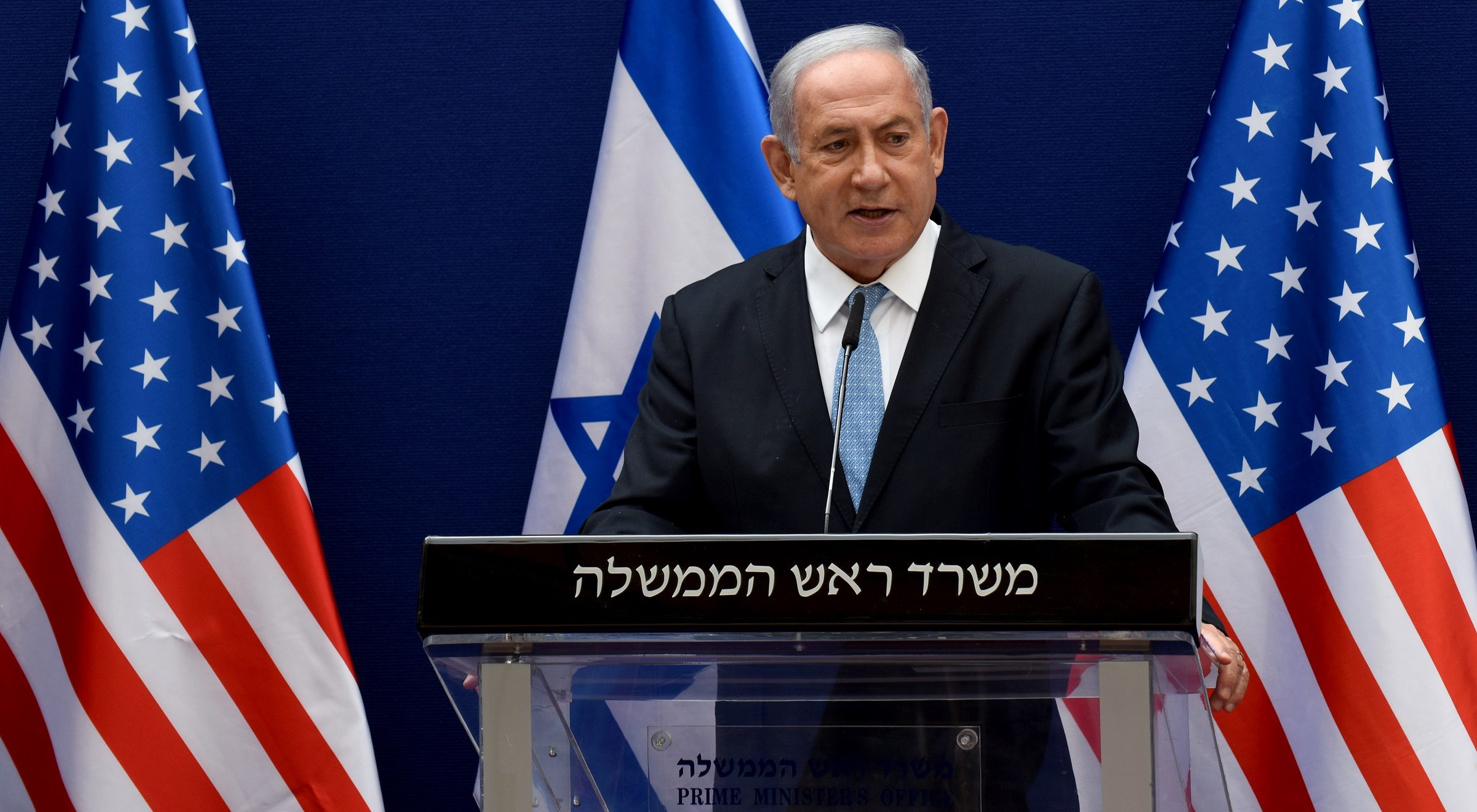Publications
INSS Insight No. 1673, December 21, 2022
The United States administration is careful to stress that it respects the democratic elections held in Israel and that it intends to relate to “the policies it pursues rather than individual personalities.” However, the impression is that there is growing concern in Washington over the possible implications of Israel’s expected policies for the bilateral relations. Even if the new government does not implement all the moves that members of the emerging coalition present as essential in the context of the Palestinian issue, the judicial system, and minority rights, conflict with the US administration is almost inevitable. This in turn is liable to narrow Israel’s ability to maintain an intimate dialogue with the US on vital issues in a reality replete with challenges, first and foremost Iran, and particularly in view of the US administration’s need to formulate its own policy toward Iran, which continues to advance its nuclear program. It is even possible that the policies of the Israeli government will have a long-term negative impact on American motivation to maintain the special relationship.
Since the recent Knesset elections, the United States administration has acted with great caution and largely avoided taking a stance over the policies of Israel’s emerging new government. In the only official reference to date, US Secretary of State Antony Blinken, in a speech at the J-Street National Conference, stressed that the administration respects the democratic elections held in Israel, and that it intends to “gauge the government by the policies it pursues rather than individual personalities.” However, Blinken also insisted to the left wing pro-Israel lobby that the United States “will hold it to the mutual standards we have established in our relationship over the past seven decades.” He said the US will continue to support democratic values, including LGBT rights and equal justice for all Israel’s citizens.
But apparently, behind the scenes, some US elements were careful to leak to the media in Israel that the administration has been holding discussions about policy toward the new government and relations with incoming ministers Itamar Ben-Gvir and Bezalel Smotrich, although so far no decisions have been taken. Criticism has also been heard in Congress, mainly among the ranks of the Democrats, regarding the expected composition of the government and concern over Israeli conduct, particularly regarding human rights and the Palestinian issue. In a December 17 editorial, the New York Times stated that “Mr. Netanyahu’s government…is a significant threat to the future of Israel,” and that “the Biden administration should do everything it can” to help the “moderating forces in Israeli politics” in their struggle against the reforms planned by the new government, and “do everything it can to express its support for a society governed by equal rights and the rule of law in Israel, as it does in countries all over the world.”
Since the start of the Biden presidency, the United States has demonstrated great commitment to Israel’s security and welfare, and relations with incoming Prime Minister Benjamin Netanyahu (which have had their ups and downs) are good. Indeed, the administration is expected to show restraint, not rush to take a formal position, and seek to avoid any conflicts with the new government as much as possible. In an interview with Haaretz, US Ambassador to Israel Tom Nides stressed that “Netanyahu is responsible for this government, and I deal with the Prime Minister, who has made it clear to us that he has both hands firmly on the steering wheel.”
Even so, the main test for the administration will be the policies introduced by the new government with respect to the Palestinians. In his J-Street speech, Secretary of State Blinken stressed that the US still supports the two-state solution, and that any moves that distance the parties further from that goal are dangerous to Israel’s long-term security and its Jewish identity. He stated that the administration is aware that at the present time, the chances for a political solution are poor, but nonetheless it is determined to maintain the options for future progress. Therefore, according to Blinken, the administration will object to any moves that increase tension and weaken the chance of reaching a political solution. Blinken stressed explicitly that the administration will oppose any expansion of settlements in the West Bank, any annexation moves, anything that affects the status quo on the Temple Mount, and incitement to violence. When asked about the administration’s position if the new government acts to recognize outposts, the US Ambassador stressed that “we do not support that.” He said that the idea of retaining the two-state vision is clear: “We expressed this again and again and we will work with the government to ensure, as far as we can, that the positions in which we believe are implemented.”

Blinken’s detailed restatement of the United States position appears to express great concern at the expected policies of the new government. Even if only some of the moves that the members of the incoming coalition have presented as essential demands in the context of the Palestinian issue are actually implemented, conflict with the US administration seems inevitable. While Blinken has avoided making threats, it is clear that any significant Israeli deviation from the status quo in general, and the promotion of unilateral moves in particular, will affect the administration’s dealings with Israel. The US response could be reflected in many ways, from open condemnation to actual erosion in the support that Israel receives from the United States in international institutions, including the Security Council, which will likely address the subject.
Israel’s new government must take into account that conflict with the administration will harm its ability to conduct a strategic dialogue, and precisely during a period laden with challenging developments in the global and regional arenas, such as the confrontation with Iran, the increasing competition with China, including in the Middle East, and the war between Russia and Ukraine. Even if the administration believes that diplomacy is the preferred way to stop Tehran from obtaining nuclear weapons, Iran’s significant progress in uranium enrichment capabilities will oblige the administration to formulate an alternative plan of deterrence – and this in turn will oblige Israel to try and influence the administration discreetly. American Jews have an important role in helping to shape their government’s positions. In view of the noticeable erosion in support for Israel in the United States, it is important to strengthen ties with various Jewish organizations and avoid moves that could arouse their opposition.
Moreover, and with reference to the international arena, the US administration sees the promotion of a liberal agenda and the reinforcement of democracy as central political objectives in the second half of its term as well. In its view, Israel must preserve these principles, particularly with respect to human rights and the independence of the courts. Israel’s value as an asset to the United States derives in part from its status as the only democracy in the Middle East, and moves by Israel that are deemed by the US to conflict with these values could damage the relationship.
There are already growing voices in Washington among Democrat lawmakers, particularly in the progressive wing and at times from the center of the party as well, that reject Israeli policy and demand stronger reactions – going so far as demanding linkage of aid to Israel with its policy on the Palestinian issue. Although the administration may be sympathetic to Israel, it cannot remain silent if it believes that Israeli actions contravene the shared values that are the foundation of the special relationship between the two countries. So far the administration has successfully steered clear of a major confrontation, but this cannot be guaranteed forever.
When formulating its positions on the key issues on its agenda, Israel must consider American interests, which will have a positive effect on its perception as an ally, both in the administration and in Congress. Israeli conduct and the features of the relationship between the countries in the next two years will have a substantive long-term impact in view of current demographic, economic, and social processes in the United States, and even if some of them are not directly linked to Israel, they could contribute to erosion of the American commitment to Israel. Ignoring these processes could be disastrous for Israeli interests, since sooner or later they are likely to damage the special relationship with the US. The Israeli government must therefore adjust its preparations to deal with these problematic trends, and sooner rather than later. Moreover, the second half of the Biden presidency in advance of the presidential elections in November 2024 is likely to be stormy, and bring the polarization of the struggle between Democrats and Republicans into sharper relief. It is therefore vital for the new government to display caution, and above all avoid as far as possible being dragged into political disputes in Washington. The Israeli interest lies in the continuation of the bipartisan consensus over support for Israel.
No one disputes that American aid is a decisive component of Israel’s national security, and that the complex political and security challenges that Israel is expected to face in the coming months require full coordination with Washington. The Israeli leadership must of course defend what it considers essential for national security, even at the price of clashing with the administration. However, it must also be understood that in Washington – in the administration as well as in Congress – Israel is expected to respect American values. It is therefore vital that when formulating a coherent policy to tackle current regional and international challenges, and certainly those at the heart of US interests, Israel consider US needs. The approach must be businesslike, with strict transparency and ongoing dialogue. Public arguments can quickly descend to a level that is interpreted by Washington as aggravating the administration and action on the part of an ally that is contrary to American interests. For Israel, its relations with the United States are a top priority, and it is thus obliged to pursue polices that harmonize with American policies – even at the expense of other interests.



